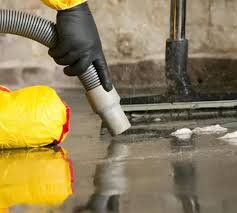Sewage backups can turn a peaceful home into a major headache. From foul odors to structural damage, these issues require immediate attention. Many homeowners ask the critical question: Is sewage backup cleanup covered by insurance? Understanding the details of your policy and the factors influencing sewage backup cleanup cost can save you stress and money during an emergency. Let’s dive deeper into the subject and find out how Basement water damage restoration fits into the equation.
What Causes a Sewage Backup in the First Place?
Before discussing insurance coverage, it’s essential to understand the common causes of sewage backups. They include:
- Clogged sewer lines due to grease buildup, tree roots, or debris.
- Heavy rainfall or flooding, overwhelming municipal systems.
- Aging plumbing systems prone to leaks and breaks.
- Improper disposal of waste items, such as wipes or hygiene products.
Knowing the cause is important because insurance coverage often depends on what led to the backup.
Does Standard Home Insurance Cover Sewage Backup Cleanup?
In most cases, standard homeowners insurance policies do NOT cover sewage backups. These policies usually focus on sudden and accidental damage, not issues caused by external sewer lines or gradual problems.
However, many insurance companies offer an optional sewage or water backup endorsement. This additional coverage helps pay for the Basement water damage restoration, cleanup services, and property replacement costs caused by backups.
What Does the Sewer Backup Endorsement Cover?
When you add sewer or water backup coverage to your policy, it generally covers:
- Cleanup services after a sewage spill.
- Repair or replacement of damaged walls, floors, and furniture.
- Personal belongings restoration (if salvageable).
- Additional living expenses if your home becomes uninhabitable.
This extra coverage typically adds only a small amount to your annual premium, making it a smart investment for homeowners.
How Much Does Sewage Backup Cleanup Cost?
One of the most common concerns homeowners have is the sewage backup cleanup cost. The price can vary depending on:
- Extent of contamination – Category 3 water (black water) cleanup is expensive because it requires full sanitization.
- Size of the affected area – Larger basements or multiple rooms cost more.
- Damage severity – Carpeting, flooring, drywall, and furniture restoration all impact pricing.
- Emergency services – Immediate cleanup often costs more but prevents bigger issues like mold growth.
On average, sewage backup cleanup cost ranges from $2,000 to $10,000 or more, depending on the damage. Without proper coverage, these costs come out of pocket.
Why Is Basement Water Damage Restoration So Important?
When a sewage backup affects your basement, the damage can be extensive. Basement water damage restoration goes beyond removing water—it involves:
- Deep cleaning and sanitization to eliminate harmful bacteria.
- Drying and dehumidification to prevent mold growth.
- Structural repairs to restore walls, floors, and foundation areas.
- Odor removal for a healthy living environment.
Delaying restoration can lead to structural issues and health hazards, increasing long-term expenses.
Does Insurance Cover Basement Water Damage Caused by Sewage?
If you have the water or sewage backup endorsement, then Basement water damage restoration costs are typically covered. Without it, standard insurance usually excludes damage caused by sewer backups, leaving you responsible for all repairs and cleaning.
How to File an Insurance Claim for Sewage Backup Cleanup?
If you experience a backup, follow these steps for a smoother claim process:
- Stop the source of backup if possible.
- Document the damage with photos and videos.
- Call your insurance company immediately.
- Hire professional cleanup services like Ideal Response, who specialize in fast, efficient restoration.
- Keep receipts and invoices for all expenses related to cleanup and repairs.
Professional cleanup companies often work directly with insurance adjusters to ensure you get the maximum coverage available.
How Can You Prevent Sewage Backups and Reduce Cleanup Costs?
Prevention is always better than cure, especially with something as unpleasant as sewage. Here are some effective tips:
- Install a backflow prevention valve in your sewer line.
- Avoid flushing wipes, grease, or hygiene products down the toilet.
- Schedule routine plumbing inspections to detect potential issues early.
- Consider a sump pump with a battery backup for added protection.
By taking these preventive measures, you can reduce the likelihood of dealing with a costly cleanup.
Why Choose Professionals for Sewage Backup Cleanup?
Cleaning sewage water is not a DIY project. It involves hazardous contaminants and strict safety protocols. Professional restoration companies like Ideal Response provide:
- Advanced cleaning equipment for complete sanitization.
- Certified technicians trained to handle hazardous waste.
- 24/7 emergency response to minimize damage and health risks.
- Insurance coordination to simplify the claims process.
Hiring experts ensures your home becomes safe and habitable as quickly as possible.
Final Thoughts: Is It Covered or Not?
So, is sewage backup cleanup covered by insurance? The answer depends on your policy. Standard coverage usually excludes it, but adding a water or sewer backup endorsement is an affordable way to protect your home and finances. Given the high sewage backup cleanup cost and the complexity of Basement water damage restoration, having the right coverage is essential.
